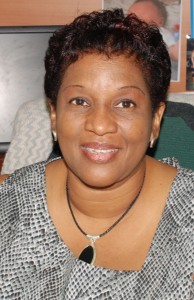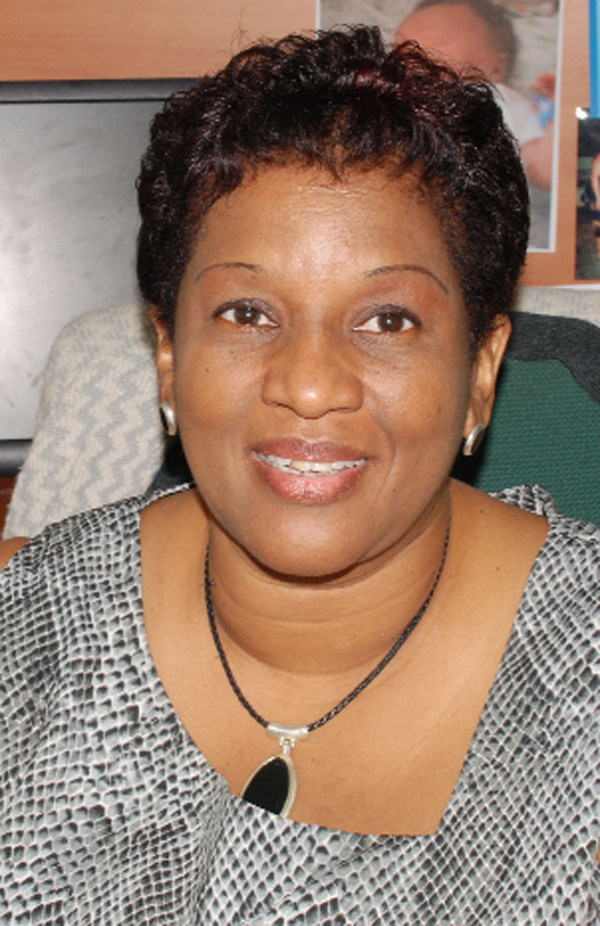The major cancers have a higher prevalence among African Guyanese than other population groups, a recent study found.

This is consistent with a trend which was seen some seventeen years ago, and it is believed that some of the contributing factors were a genetic predisposition, socio-economic influences including low income status, and promiscuity, according to a recent study.
The findings of the study, titled ‘Common cancers of the Afro-Guyanese population: A silent issue for too long,’ were presented at a May 2007 conference held in Jamaica under the theme, ‘African-Caribbean Cancer Consortium.’
The study was authored by Tumour Registrar Penelope Layne and Nurse Premini Persaud both of the Guyana Cancer Registry, and University of Guyana lecturer and head of the cancer group Periwinkle, Dr Wallis Best Plummer.
According to their findings, with the exception of breast cancer, the highest percentage of all other cases involving major cancers were Afro-Guyanese. However, the report qualified this by observing that if the number of breast cancers among East Indians and Africans were adjusted according to their relative proportion in the national population, breast cancer would also be more prevalent among Afro-Guyanese women.
Cancer has been one of the five leading causes of death for over 15 years, according to the Statistical Unit of the Ministry of Health.
The high prevalence of the various cancers among the African segment of the Guyanese population was not unexpected as a pilot of cancer care in Guyana in the early 1990s had previously found a 54% prevalence among this group.
“This continuing high prevalence of cancers after seventeen years however suggests that little has changed to reduce the impact of this disease,” the report said.
Causes
And while speculation about the likely contributory factors are preliminary, the report said that the roles of genetic predisposition and socio-economic influences could not be ignored. Since prostate and breast cancer had been associated with genetic polymorphisms, the Afro-Guyanese gene pool was of interest.
“Similarly, recognising the role of a poor diet in the development of all types of cancer, the typical high-fat, high carbohydrate in the Guyanese diet is likely to be a key determinant of cancer prevalence.”
The report concluded that other likely socio-cultural predisposing factors included low-income status, promiscuity – especially among the male population – the general absence of an exercise-conscious way of life, the failure of communities to emphasise disease prevention as a means of promoting health, the paucity of cancer-limiting behaviours and poor health-seeking practices leading to late diagnoses of serious illness.
Statistics
Presenting the evidence used to come up with the conclusions, the report said that the most prevalent cancers among persons of African descent were those of the prostate, lung, breast, cervix, stomach, liver and colon. African men accounted for 65% of all prostate cancer in the country while the women accounted for 44.1% and 39% of all breast and cervical cancers respectively. While most of the men affected by prostate cancer are largely diagnosed over the age of 60, breast cancer is most prevalent among women aged 41 to 60.
And among the male population Afro-Guyanese account for 99% of the stomach cancers, 45% of the lung cancers and over 50% of both colon and liver cancers.
“Afro-Guyanese women also experienced between 39% and 45% of all the main gender-specific and gender-neutral cancers. In particular, they had the highest incidence of cervical cancer largely in women 40-60 years of age with over 60% cases diagnosed at stage 2,” the report said.
“This review has highlighted the disturbingly disproportionate affliction of Afro-Guyanese who constitute 30.2% of the national population with the major cancers reported to the registry. Efforts must be applied at raising awareness of the seriousness of this problem, and educating the susceptible population about easily adoptable health-promoting behaviours,” the report noted. .
Challenges
And in the report Nurse Layne said the registry had several challenges in its work, as apart from the dispersed geographical distribution of at-risk populations which limited the reporting of diagnoses, there was ongoing underreporting fuelled by social and legislative factors. “As an example, the absence of a Cancer Act making cancer a notifiable disease, both accommodates the withholding of data by private care-givers who plead patient confidentiality as their jurisdiction, and fails to penalise delinquent public health institutions,” the report said.
The above was compounded by the lack of confidence in the quality of available health care, many affluent Guyanese seeking diagnosis and treatment overseas which exacerbated data loss. The report said that political will was needed to move the issue of cancer into the forefront of health discussions and debates, so that meaningful investigations could be conducted and informed interventions made, further improving the availability of quality health care.
And while in the past data was only collected from the main hospitals in Georgetown, Nurse Layne told Stabroek News that she and the staff now had schedules to visit Essequibo, Berbice, Linden and Bartica to gather data.
“It is not in the culture of some institutions to send in the data as is required, so we go out and collect the relevant data,” Nurse Layne said.
She said the major cases of cancers remained the same as far as breast, cervical and prostate cancers were concerned. However, there had been an increase in stomach cancer in recent times.
In Amerindian predominant regions, such as One, Two and Nine, cervical cancer was more common, while in Region 10, with a concentration of Afro-Guyanese, prostate cancer was most prevalent form of the disease.
From 2000 to 2006 there had been some 525 recorded cases of cervical cancer with 256 of this number dying. The highest number of recorded cases and deaths was in 2005 with 108 and 44 respectively.
No support mechanism
Owing to the fact there is no support mechanism for persons diagnosed with cancer, Nurse Layne said she received several calls a day from persons who just needed someone to talk to.
“There is no support mechanism for persons who have cancer; the doctors just give the patients their results and they are left out in the cold. They have no one to talk to and many of them are in need of counselling, and I receive many calls daily. Some people may even pass and see our sign and come in for assistance,” Nurse Layne said.
As a result, she said they had been working along closely with the recently established Periwinkle cancer group, through which cancer patients received some form of support and counselling. She said that in the group there were cancer survivors who would counsel newly diagnosed patients, and who would also visit the Georgetown Public Hospital (GPH) and talk with cancer patients.
And on a brighter note, Nurse Layne said that cancer patients were now seen separately by the oncologist at the GPH from other surgical patients, which made it easier for the survivors to find them.
Further, Nurse Layne said cancer treatment continued to be expensive, so it was good that it was available locally and persons continued to receive assistance from the Ministry of Health, with those contributing to the National Insurance Scheme (NIS) also receiving some assistance from the scheme.
The registry was established in 2000.

